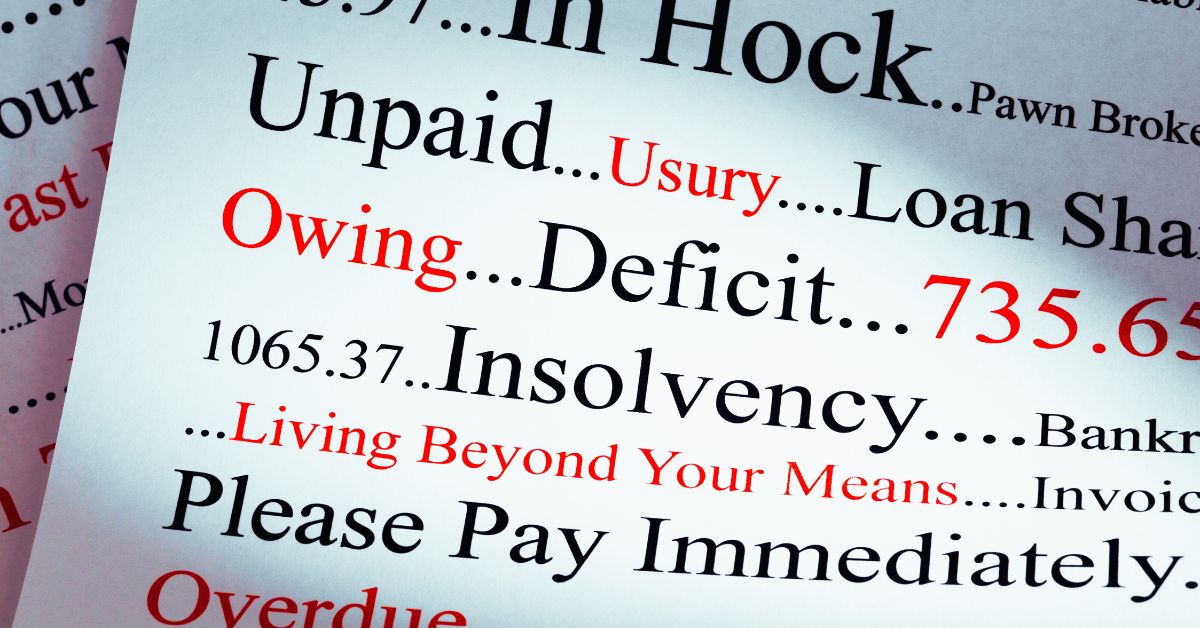Is there ever a time when it feels like money slips through your fingers faster than you can catch it? You’re not alone. There are many people who struggle financially, often unknowingly making costly mistakes that impede their financial success. Whether you overspend, do not save, or fail to plan for the future, these mistakes can greatly affect your financial well-being. We will discuss some of the most common money mistakes in this post as well as practical strategies to help you overcome them.
Top 5 Financial Mistakes People Make in Their 20s
In your 20s, you are embarking on exciting new experiences, new jobs, and new relationships. It can be tricky to navigate finances, and some common mistakes may have long-term repercussions. The following are five financial mistakes people tend to make in their 20s:
Not Budgeting

It is one of the most common and costly financial mistakes people make to fail to create and adhere to a budget. In reality, budgeting is a powerful tool for taking control of your finances. Unless you have a budget, your money can easily disappear through your fingers.
Imagine getting paid, and then suddenly your money vanishes. A particularly memorable purchase may come to mind, a spontaneous weekend getaway, or a gadget you needed but couldn’t resist. This lack of awareness is a hallmark of not budgeting.
During my early 20s, I remember earning a decent salary but constantly feeling broke. At the end of every month, I’d find myself scrambling for cash because I’d spent too much on dining out, impulse buying, and weekend trips. My finances were constantly a source of stress, and I was living paycheck to paycheck. After I finally decided to create a simple budget, I realized just how much I had been overspending.
Without a budget, there can be serious consequences:
- Overspending: Without a clear plan, it’s easy to go overboard on unnecessary spending and build excessive debt.
- Increased tension: Constant financial instability can cause anxiety and tension, affecting your general well-being.
- Saving Difficulties: Without a budget, it is difficult to allocate funds for savings goals such as retirement, emergencies, and down payments.
- Missed Financial Opportunities: Not knowing your entire financial picture can keep you from making educated decisions about investments, career paths, and other significant financial milestones.
By creating a budget, you can break this cycle. Start by following these simple steps:
- Track your income and expenses: For a month, carefully document every cent you make and spend. This can help you get a clear image of your present financial status.
- Categorize your expenditures: Divide your costs into three categories: necessary (rent, utilities, groceries), optional (eating out, entertainment), and debt repayment.
- Set realistic financial goals: Set savings objectives and prioritize your expenditure accordingly.
- Regularly examine and adjust: As life changes, so should your budget. Regularly assess your spending habits and make changes as needed.
Setting a budget and continuously tracking your finances will help you gain control of your money, minimize financial stress, and achieve your long-term financial goals.
Ignoring Debt

When handled correctly, debt may be a great instrument, such as for schooling or a home purchase. However, ignoring debt can soon lead to a significant financial disaster.
- The Silent Drain: One of the most insidious parts of unpaid bills is the ongoing drain on your money. Interest earns at a rapid pace, making it more difficult to pay off the principal and potentially leading to a debt cycle. For example, credit card debt often carries high-interest rates, meaning you’re essentially paying a significant premium for the borrowed funds.
- Credit Score Damage: Failure to make timely loan or credit card payments can have serious consequences for your credit score. A low credit score can limit your future credit availability, making it more expensive to borrow for large purchases such as a car or a home. It may also affect your capacity to obtain cheaper interest rates on loans.
- Stress and Anxiety: The weight of developing debt can have a severe impact on your mental and emotional health. Constant financial concerns can cause stress, anxiety, and even despair.
I experienced a similar situation when I was in my early twenties. My credit cards were a few, and I made minimum payments, thinking I could easily pay them off. But I soon realized I was barely scraping the surface of the principal, and interest was accumulating quickly. I began to lose sleep and feel unwell because of constant worry about my growing debt.
Finally, I decided to take action. Paying down my highest-interest debt first was a priority for me since I created a detailed budget and tracked my spending meticulously. At times, I felt overwhelmed, and it wasn’t easy. With consistent effort and discipline, I gradually reduced my debt.
Not Saving for Retirement

Most people neglect to save for retirement when they are young, especially in their twenties and thirties. It’s easy to put retirement planning on hold in the face of immediate needs and desires. It can, however, result in a less comfortable and financially insecure retirement as a result of this inaction.
The Power of Compound Interest:
The principle of compound interest has an important effect on retirement savings. Compound interest means that you earn interest on both your initial investment and the interest that has accumulated over time. This snowball effect might considerably boost your retirement savings in the long run.
Read this article to know the power on compounding in details: What is CAGR? Understanding the Compound Annual Growth Rate
Retirement savings can be started early for several key reasons:
- Time is your ally: The longer your money has to grow, the greater the impact of compound interest. Even tiny contributions given early on might collect greatly over time.
- Reduced Contribution Burden: Starting early helps you to contribute lesser amounts more consistently, making it easier to fit retirement savings into your budget.
- Increased Flexibility: Early saving allows you to adapt your savings approach as your income and circumstances change.
Risk of Delaying retirement savings can have serious consequences:
- Reduced Investment Growth: The longer you wait to begin saving, the less time your money has to grow through compound interest, which might result in much fewer retirement savings.
- Increased Contribution Burden: To make up for lost time, you may need to contribute more later in life, which can be difficult, particularly if your income has plateaued.
- Increased Financial Strain: Insufficient retirement savings might cause financial hardship in retirement, requiring you to rely on social security or deplete other assets, lowering your quality of life.
Let’s say two individuals, Alex and Ben, both wish to retire with $1 million. A retirement account is opened for Alex when he is 25 years old, where he contributes $500 a month. While Ben delays saving until he is 35, he contributes $1,000 per month. The power of compound interest and Alex’s longer investment horizon would likely allow him to accumulate more than Ben, even if he contributed less.
Living Beyond Your Means

Living beyond your means can cause significant stress and long-term financial instability. Basically, it means spending more than you earn. A lack of financial control can manifest in various ways, from impulsive purchases and excessive borrowing to keeping up with social pressures and maintaining an expensive lifestyle.
Signs You Might Be Living Beyond Your Means:
- Consistent Credit Card Debt: Relying heavily on credit cards for daily spending and struggling to pay off the balance each month is a red flag.
- Constant Cash Shortages: Having repeated periods when you don’t have enough money to cover basic expenses such as rent, utilities, and groceries.
- Maxed-Out Credit Limits: Consistently exceeding your credit cards’ maximum borrowing limits.
- Ignoring Bills: Delaying or avoiding payment of bills due to lack cash.
- Keeping up with the Joneses: Feeling driven to live a specific lifestyle in order to please others, which leads to excessive expenditure on luxury products or experiences.
- Overdrafts: Frequently incurring bank overdraft penalties due to insufficient finances.
The Consequences of Living Beyond Your Means:
- Increased tension and Anxiety: Financial instability can have a big influence on your mental and emotional health, producing persistent concern and tension.
- Damaged Credit Score: High credit card balances, late payments, and collections can all harm your credit score, making it difficult to get loans, rent an apartment, or even find work.
- Financial issues can cause enormous strain on personal relationships, especially those with partners, family, and friends.
- Living over your means limits your capacity to attain financial goals such as retirement savings, property ownership, or establishing a business.
Not Investing

A common financial mistake is not investing your money. Your wealth could be hindered and your future financial security could be threatened if you fail to make this vital investment.
- The Power of Compounding: Investing puts your money to work for you through the powerful principle of compounding. In simple terms, your initial investment earns returns, which generate additional returns. Over time, this compounding impact can transform little payments into large riches. If you do not invest, you will miss out on the exponential growth potential.
- Inflation and Eroding Purchasing Power: Inflation is the progressive reduction of money’s purchasing power over time. If your money is just sitting in a low-interest bank account, they lose value as inflation rises. Investing, on the other hand, has the ability to beat inflation while preserving your purchasing power.
- Missed Opportunities: Not investing means missing out on possibilities to contribute to economic progress. Investing in stocks, bonds, or other assets allows you to benefit from global business and economic success. By not investing, you miss out on the opportunity to profit from this growth and expand your wealth.
Investing has proven to be powerful in my own life. Early on, I failed to invest my savings diligently. In the face of market volatility, I focused on short-term goals. In turn, I missed out on valuable opportunities and didn’t grow my savings as much as I could have.
After discovering the importance of investing, I began contributing regularly to retirement accounts and exploring other investment options. It has made a significant difference. I have experienced steady growth in my investments, giving me peace of mind and financial security.

